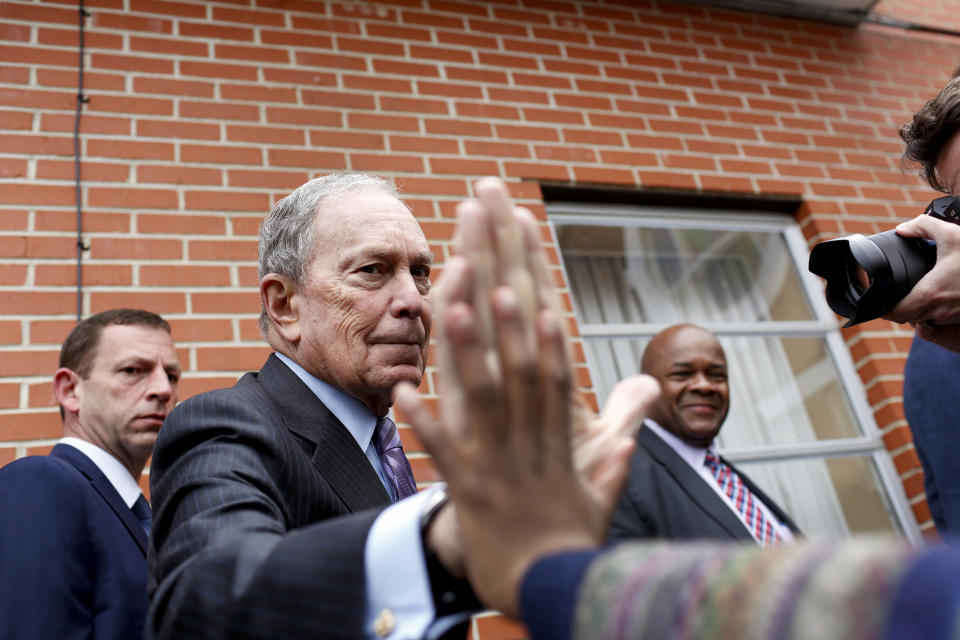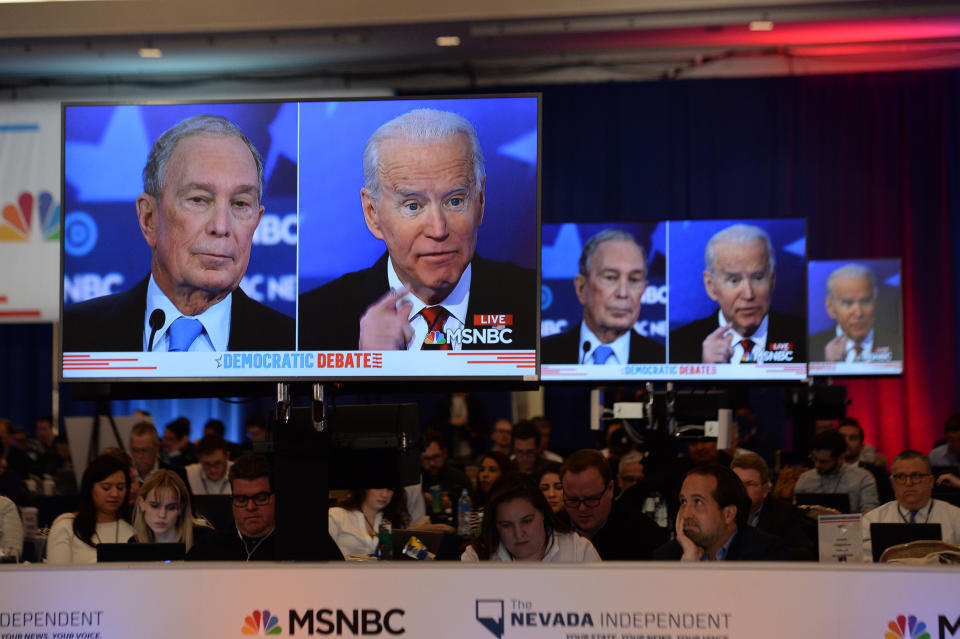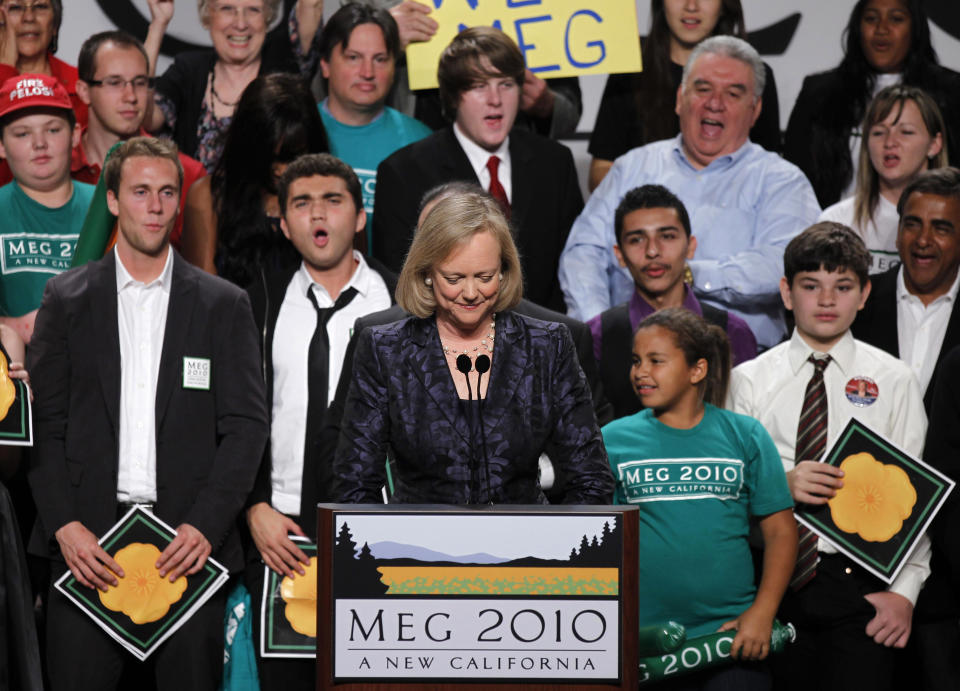Bloomberg's departure shows you can't buy a political win — especially in California
Mike Bloomberg dropped out of the 2020 presidential race Wednesday, acknowledging his victory was untenable and receiving zero delegates in the key state of California.
The golden state, in particular, has a historic distaste for deep-pocketed politicians like the billionaire former mayor of New York City. As of Wednesday afternoon, with 87% of precincts reporting, Bloomberg received 14.3% of the votes, coming in third place after Senator Bernie Sanders and former vice president Joe Biden.
Bloomberg poured over half a billion dollars into his campaign only to win one contest — in American Samoa — on one of the most critical days of the election cycle. One-third of all delegates are awarded to candidates depending on the outcomes across Super Tuesday states. The billionaire’s candidacy proves that investment can buy you recognition, but certainly not a guaranteed return.
“I think it's undeniable that somebody who can commit unlimited resources to advertising both on traditional media and new social media will have an impact, absolutely. Because when you saturate the market, you saturate the market,” California Secretary of State Alex Padilla told Yahoo Finance ahead of Tuesday’s primary.

“But California, I think, has unique experience with wealthy candidates of all parties. We've seen very wealthy candidates, self-funded candidates, run for United States Senate, run for governor of California, and not do very well. While resources are helpful, it's not a substitute for either message or relationship with the voters,” added Padilla, who has endorsed Biden.
Bloomberg followed the blueprint of fellow dropouts, former mayor of South Bend, Ind. Pete Buttigieg and Senator Amy Klobuchar, in endorsing Biden. Former hedge fund manager and fellow billionaire Tom Steyer spent $250 million on his presidential run only to withdraw his candidacy after Saturday’s disappointing South Carolina primary.
Money is still a ‘huge determinant’
“Money is a huge determinant, especially in a state like California where you must be on TV in order to get known and put in front of the people who got massive media markets here — the Bay Area. Los Angeles, San Diego, Sacramento,” Douglas Herman, a veteran political strategist who worked on Barack Obama’s 2008 and 2012 campaigns, told Yahoo Finance before Tuesday’s primary. “These are big markets. They're expensive. They're tough to get into. They're tough to break through. And the only way to do that is with money.”

While Bloomberg wasn’t even on the South Carolina ballot (he didn’t make the December deadline to submit his filing), he maintained a ubiquitous presence across airwaves and screens across the U.S. over the last few months.
Bloomberg spent over $500 million on advertisements during this election cycle, or over 62% of the total spent by all candidates, according to FiveThirtyEight analysis using data from Kantar and Campaign Media Analysis Group. The latest entrant to the race spent $77.4 million on California TV and radio alone. In fact, he spent a whopping $7.2 million to air ads on a single television station — Los Angeles’ KCBS.
‘A bias against people with wealth’
One thing is certainly clear. While money does matter, there isn’t a direct correlation between money spent and votes earned. California, while evoking visions of Hollywood stars and tech moguls, is a diverse state whose population has been wildly unimpressed by wealthy candidates.
After a term in the House of Representatives, Republican former banker Michael Huffington spent $28 million of his own money in an attempt to unseat Senator Dianne Feinstein in 1994. At the time, Huffington's bid was the most expensive for a non-presidential campaign in American history. He still lost. Democrat Al Checchi, an airline executive, spent $40 million of his own wealth in California’s 1998 gubernatorial election before losing himself.

Billionaire Meg Whitman spent a reported $178.5 million on a mostly self-funded campaign for governor in 2010. Running as a Republican, she lost to political veteran Jerry Brown. Whitman had previously been the chief executive of eBay and would also go on to run Hewlett-Packard and is now CEO of streaming service Quibi.
Of course, wealth is merely one thread in these failed attempts at political power. But former Los Angeles mayor Antonio Villaraigosa and Bloomberg surrogate acknowledged this overall aversion to extremely wealthy candidates, in an interview before Super Tuesday.
“Yes, there's some people that have a bias against people with wealth. But this isn't a man that just made a lot of money. Remember, he didn't grow up with a silver spoon the way Donald Trump did, handed some $300 million to build on his fortune. He did it the hard way, went to school, worked in finance, lost the job, started a small business on his own, his small business has grown 20,000 strong, and, importantly, has helped to put him where he is today,” Villaraigosa told Yahoo Finance in an interview.
“But he's also given back, and I think that's important, and that distinguishes him from other really wealthy people. But yes, there's some who will take issue with that. I take issue with people who don't understand that to whom much is given much is expected. And I think Michael Bloomberg understands that,” he added.
The outcomes of presidential campaigns, in particular, are nuanced and difficult to predict, as there are certain intangibles that money can’t buy.
“There is a high correlation in political campaigns between spending money — and having the most money — and winning. In presidential campaigns that line gets broken a little bit because people talk about it in ways that they don't talk about other races...the word of mouth and the cocktail chatter and the social chatter has a bigger impact on that,” said Herman.
________
Melody Hahm is Yahoo Finance’s west coast correspondent, covering entrepreneurship, technology and culture. Follow her on Twitter @melodyhahm.
Read more:

 Yahoo Finance
Yahoo Finance